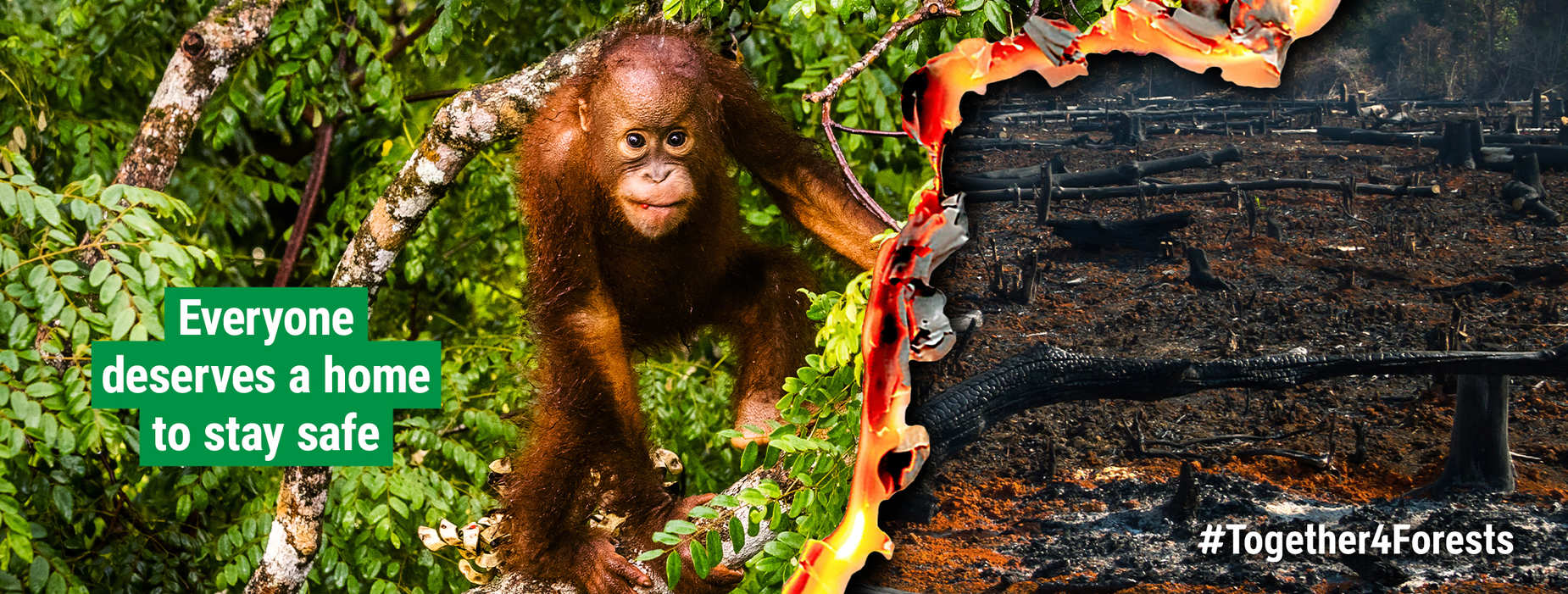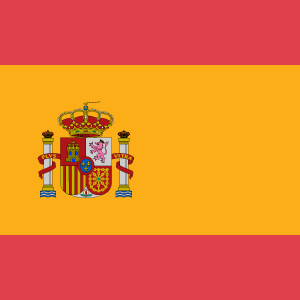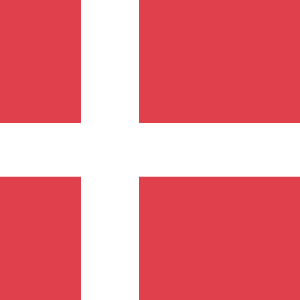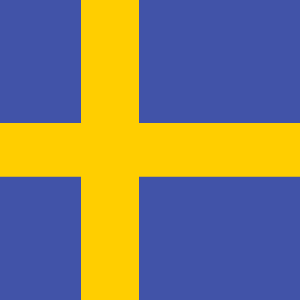
Our response to the European Commission’s public consultation for a strong law against deforestation, nature destruction and human rights violations
The European Commission has opened an online consultation to ask the public which measures the EU should take to address the EU’s role in deforestation. We have until 10 December 2020 when the consultation will close.This is your chance to take action and make your voice heard on what a new EU law should look like!
The answers from the #Together4Forests campaign focus on our call for strong, new EU legislation to address not only deforestation and forest degradation, but also ecosystem conversion and degradation, as well as the protection of human rights - including Indigenous Peoples and local communities. Some questions have been left unanswered as we do not provide answers to questions which would divert attention away from the need for new legislation or away from the responsibility of our political leaders. For example, we did not favour consumer information as a key solution, since the burden of sustainability should not be put on consumers’ choices only!
Section I: The problems of deforestation and forest degradation
In this section, we will ask you for your opinion about the issues of deforestation and forest degradation. This section includes questions about the magnitude of the problems, the drivers of deforestation and forest degradation, and the role of the European Union in reducing deforestation and forest degradation associated with products placed on the EU market.
Q1.1 To what extent do you think an EU-level intervention on EU consumption of goods would reduce global deforestation and forest degradation?
- Not at all
- Very little
- Somewhat
- Much
- Very much
- I do not know
Q1.2 In your opinion, to what extent do each of the economic sectors below contribute to deforestation and forest degradation through the goods and services they provide (on the EU market)? Please rate each option below on a scale of 1 to 5, with 1 as no contribution at all, 2 as a low level of contribution, 3 as a moderate level of contribution, 4 as a high level of contribution, and 5 as a very high level of contribution.
| 1 | 2 | 3 | 4 | 5 | I do not know | |
| Animal-based food and non-food (e.g. wool, leather) sector | ||||||
| Chemicals | ||||||
| Construction/infrastructure | ||||||
| Energy/biofuels | ||||||
| Manufacturing | ||||||
| Other services (e.g. education, hospitals, advisory services, ICT) | ||||||
| Textiles | ||||||
| Mining/oil and gas | ||||||
| Plant-based food and feed sector | ||||||
| Tourism | ||||||
| Transport | ||||||
| Other |
Q1.2.1 If other, please specify sector(s)
Our submission:
All sectors and commodities are relevant for the EU legislation, including the finance sector. They should be assessed not only for their impact on deforestation and forest degradation, but also on ecosystem conversion and ecosystem degradation and human rights violations.Our rationale:
All sectors in the EU need to be urgently assessed on whether they contribute to the destruction or degradation of forests and other ecosystems. The assessment also needs to cover their contribution to human rights violations, which is not reflected in this question. The relevant sectors assessed must include the finance sector, as investors or banks can be linked to companies that are involved in deforestation or human rights violations.
Q1.3 In your opinion, to what extent do the following commodity groups contribute to deforestation and forest degradation, due to their consumption within the EU market? Please rate each option below on a scale of 1 to 5, with 1 as no contribution at all, 2 as a low level of contribution, 3 as a moderate level of contribution, 4 as a high level of contribution, and 5 as a very high level of contribution.
| 1 | 2 | 3 | 4 | 5 | I do not know | |
| Animal-based products (e.g. animal fat, blood, flesh, milk, eggs, skin, wool, and products made from these raw materials) | ||||||
| Cereals (e.g. wheat, maize, rice, barley, oats, rye, sorghum) | ||||||
| Fodder crops (i.e. crops cultivated primarily for animal feed) | ||||||
| Fruits and vegetables | ||||||
| Industrial crops (e.g. rubber, tobacco, fibre crops) | ||||||
| Mining products (e.g. precious metals, ores, coal) | ||||||
| Oil and gas | ||||||
| Oil crops (e.g. soybeans, palm, rapeseed, sunflower, canola, mustard, flax, jatropha, coconut, hemp) | ||||||
| Stimulants (coffee, cocoa, tea) | ||||||
| Sugar crops | ||||||
| Wood and wood-based commodities, including pulp and wood pellets | ||||||
| Other |
Q1.3.1 If other, please specify commodity group(s)
Our submission:
All commodities are relevant for the EU legislation. They should be assessed on an ongoing basis and based on objective and scientific criteria, for their impact on deforestation, forest degradation, ecosystem conversion & degradation and human rights violations.Our rationale:
All commodities in the EU need to be assessed on whether they contribute to the destruction or degradation of forests and other ecosystem. The assessment also needs to cover their contribution to human rights violations, which is not reflected in this question. Solid and exhaustive criteria to evaluate the negative impact of commodities on the environment and human rights need to be part of the legislation. A 2018 study financed by the European Commission found that EU consumption of commodities including, amongst others, palm oil, soy, rubber, beef, coffee and cocoa create risks for forests. The study assessed criteria including the global scale of production, trends in production (average increase since 2000) and EU consumption.
Q1.4 In your opinion, to what extent do the following factors contribute to the consumption (within the EU) of products linked to deforestation and forest degradation? Please rate each option below on a scale of 1 to 5, with 1 as no contribution at all, 2 as a low level of contribution, 3 as a moderate level of contribution, 4 as a high level of contribution, and 5 as a very high level of contribution.
| 1 | 2 | 3 | 4 | 5 | I do not know | |
| Lack of awareness about the contribution of specific products or companies to deforestation | ||||||
| Lack of agreed regulations/standards to define “deforestation-free” products or commodities | ||||||
| Lack of availability of products from “clean” supply chains | ||||||
| Lack of reliability of products marketed as forest-friendly or deforestation-free | ||||||
| The price paid for such products does not reflect the negative social/environmental externalities caused by the impact of their production on forests | ||||||
| Regulations do not restrict the sale of goods associated with deforestation | ||||||
| Inaccurate or insufficient reporting about the impact of business activities on forests | ||||||
| Citizens cannot afford to buy deforestation-free products, which are marketed at higher prices | ||||||
| Other |
Q1.4.1 If other, please specify factor(s)
Our rationale:
The EU currently has no legislation in place that tackles our consumption of commodities linked with ecosystem destruction. Getting a law in place that can assure EU citizens that the products they buy are not linked to the destruction of nature or the violation of human rights is the biggest challenge we are currently facing and should therefore be prioritised. New legislation would also provide clear rules for companies willing to tackle their environmental and human rights footprint, while providing the means to take action against those that do not follow the rules.
As a major consumer market, trading bloc and financial player, the EU has a unique power and the duty to tackle its own consumption and set the rules straight on what products should be allowed on its market. The EU should also lead complementary efforts at global, national and local levels, including securing the rights of Indigenous Peoples and local communities.
Q1.5 In your opinion, to what extent do the following problems contribute to deforestation and forest degradation? Please rate each option below on a scale of 1 to 5, with 1 as no contribution at all, 2 as a low level of contribution, 3 as a moderate level of contribution, 4 as a high level of contribution, and 5 as a very high level of contribution.
| 1 | 2 | 3 | 4 | 5 | I do not know | |
| Absence of sound policies at the global level, contributing to deforestation and forest degradation | ||||||
| Absence of sound policies at the EU level that minimise the contribution to deforestation and forest degradation | ||||||
| Absence of sound policies at the national/sub-national level that minimise the contribution to deforestation and forest degradation in EU Member States | ||||||
| Absence of sound policies at the national/sub-national level that minimise the contribution to deforestation and forest degradation in non-EU countries | ||||||
| Lack of enforcement of existing policies in EU Member States | ||||||
| Lack of enforcement of existing policies in non-EU countries | ||||||
| Lack of investment in sustainable land management in countries experiencing deforestation and forest degradation in EU Member States | ||||||
| Lack of investment in sustainable land management in countries experiencing deforestation and forest degradation in non-EU countries | ||||||
| Corruption in public institutions in EU Member States | ||||||
| Corruption in public institutions in non-EU countries | ||||||
| Lack of interest and/or political leadership on the issue in EU Member States | ||||||
| Lack of interest and/or political leadership on the issue in non-EU countries | ||||||
| Poverty, uncertain land tenure, lack of resources and other problems in countries experiencing deforestation and forest degradation | ||||||
| Other |
Q1.5.1 If other, please specify problem(s)
Our rationale:
Forests provide a home to most of the plants and animals that live on land on our planet.Every year, forests and other ecosystems remove around 30% of greenhouse gas emissions, and help moderate climate change in many ways. The EU currently has no legislation in place that tackles our consumption of commodities linked with ecosystem destruction. Getting a law in place that can assure EU consumers that the products they buy are not linked to the destruction of nature or the violation of human rights is the biggest challenge we are currently facing and should therefore be prioritised. New legislation would also provide clear rules for companies willing to tackle their environmental and social footprint, while providing the means to take action against those that do not follow the rules.
The EU should also lead on complementary efforts, such as securing the rights of Indigenous Peoples and local communities and supporting poverty alleviation and better land governance in producer countries. At the same time, as a major consumer market, trading bloc and financial player, the EU has the power and the duty to act on its own consumption.
Section II: Responsibility for decision-making
The following question aims to gather your views on the level(s) of authority that should be responsible for tackling deforestation and forest degradation linked to EU consumption.
Q2.1 At what level of authority should measures tackling EU-driven deforestation and forest degradation be designed and implemented (i.e. at what level would they be most effective)?
Multiple choice question- Local/sub-national in EU Member States
- National in EU Member States
- EU level
- International
- I do not know
Our rationale:
When looking at deforestation embodied in total final consumption, the EU represents around 10% of the global share. In fact, if everybody in the world lived like the average EU resident, humanity would consume the equivalent of 2.8 planets a year (2019 figures).It is clear that the EU is part of the problem, but it can also be part of the solution by taking its responsibilities seriously.
As the world’s largest economy and a single market, the EU has not only the responsibility but also the power to act. Rather than having different kinds of national rules, the same rules need to apply to everyone wanting to sell products in the EU market, for the sake of fairness and consistency.
Section III: Potential demand-side measures and their impacts
The following questions seek your opinion on the nature and scale of potential measures to curb deforestation and forest degradation associated with the European Union’s footprint. The proposed measures include a variety of regulatory and non-regulatory policy options.
Q3.1 From a consumer’s perspective, how would information on the deforestation and forest degradation impact of the products and services you purchase influence your purchasing decisions?
- Not at all
- Not much
- Neutral
- Somewhat
- Very much
- I do not know
Our rationale:
Responsibility to tackle crises of a global scale like the loss of forests and ecosystems cannot be left to consumers alone. Access to commodities that are free from deforestation and nature destruction should be an underlying guarantee for consumers. Therefore, this question has been left unanswered as it diverts attention from the need for a new EU legislation that stops products linked to ecosystem and forest destruction, and to human rights violations, from entering the EU market.
Q3.2 Taking into account costs and benefits, which range of products linked to deforestation and forest degradation should, in your view, be covered by the future EU policy measures?
- A large number of products including all (or nearly all) that have a potential impact on deforestation
- A reduced number of products focusing on those that have the most impact
- I do not know
Our rationale:
We need to exclude products linked to deforestation and ecosystem destruction from the EU market, as we are destroying the foundations of our economy and livelihoods, food security, health and well-being worldwide.Solid and exhaustive criteria to assess negative impacts of commodities on the environment and human rights are needed to determine which products should be included in legislation. All commodities consumed in the EU need to be assessed on whether they contribute to the destruction of forests and other ecosystems. The assessment also needs to cover their contribution to human rights violations, which is not reflected in this question.
Q3.3 In your view, what kind of issues related to the origin of products should future EU measures aim to tackle?
- Their legality, understood as their compliance with the legal requirements of their country of origin as relates to forestry and land-use change
- Their forest-related sustainability, understood as their compliance with EU-determined requirements (compliant with World Trade Organization rules and building on international commitments) as relates to forestry and land-use change based on an EU definition of “deforestation-free”
- Both their legality and their forest-related sustainability, as defined above
- I do not know
- Other
Q3.3.1 If you selected both their legality and forest-related sustainability, please indicate how this could be achieved, in your view
Our submission:
Goods should not be placed on the EU market if there are risks that they are produced in breach of the country of origin law and unless they meet EU sustainability criteria to prevent forest and ecosystem destruction and human rights breaches.Our rationale:
All commodities and products placed on the EU market should be sustainable.They should not be linked to deforestation, forest degradation, conversion or degradation of natural ecosystems and be traceable back to source. They should also comply with international standards and obligations on human rights, including the rights of Indigenous Peoples and local communities. Unfortunately, national legislations do not always guarantee this, which is why additional sustainability requirements are needed.
Q3.3.2 If you selected other, please specify the issue(s)
Q3.4 What kind of forests should be prioritised by the measures to minimise environmental damages from deforestation and forest degradation? Please rate each on a scale of 1 to 5, with 1 representing not at all important and 5 representing very important.
| 1 | 2 | 3 | 4 | 5 | I do not know | |
| Primary forests (defined as "naturally regenerated forests of native species, where there are no clearly visible indications of human activities and the ecological processes are not significantly disturbed") | ||||||
| Other naturally regenerated forests (i.e. a naturally regenerated forest where there are clearly visible indications of human activities) | ||||||
| Plantation forests (defined as “a forest that at maturity is predominantly composed of trees established through planting and/or deliberate seeding”) | ||||||
| Other (please indicate which) |
Our rationale:
The world is not only losing forests due to our growing consumption of commodities, but also savannahs, grasslands, peatlands, wetlands and other valuable ecosystems. Destruction of these ecosystems is detrimental to the local communities and Indigenous Peoples depending on them. This question is left unanswered since rather than narrowing down the scope of needed EU action only to certain kinds of forests as this question suggests, new EU legislation also needs to cover the protection of other ecosystems and human rights.
Q3.4.1 If other, please indicate the kind of forest(s)
Q3.5 Do you think that forest clearances (for example, cutting forests to replace them with crop plantations) in one location can be compensated by tree planting in another location for the purpose of assessing whether a product is deforestation-free?
- Yes
- No
- Only to some extent
- Only for specific types of forests (please indicate which)
- I do not know
Our rationale:
The EU needs a new law to tackle its contribution to global deforestation and to ensure that products sold in Europe do not contribute to forest or ecosystem destruction, and related human rights abuses. This question is left unanswered since rather than focusing on EU action needed to put an end to EU-driven deforestation, it diverts the attention towards action that would undermine the protection of existing natural forests. Indeed, newly planted forests are by no means comparable to old-growth forests: they do not provide benefits such as climate mitigation and adaptation at a comparable level.
Q3.6 From the list below, which measures are the most suitable to address the issue of deforestation and forest degradation associated with EU consumption? Note that some of the measures presented below are complementary and could be combined. Please rate each measure on a scale of 1 to 5, 1 representing not suitable at all, 2 representing somewhat not suitable, 3 representing neutral, 4 representing somewhat suitable, 5 representing completely suitable.
| 1 | 2 | 3 | 4 | 5 | I do not know | |
| A deforestation-free requirement or standard that commodities or products in their product category must comply with to be placed on the EU market (and consequently a prohibition, in line with EU international commitments, of the placing on the market of commodities that do not comply with those standards) | ||||||
| Voluntary labelling (e.g. similar to organic labels for organic products) | ||||||
| Mandatory labelling (e.g. similar to nutritional information labels on food products) | ||||||
| Public national legality verification schemes, prohibited operators list, country carding system and export ban to the EU (a replication, with the necessary adaptations, of the EU legislation in place for illegal, unreported and unregulated (IUU) fishing) | ||||||
| Voluntary due diligence | ||||||
| Mandatory due diligence | ||||||
| Mandatory public certification system | ||||||
| Private certification systems, new and the ones already in place in the EU market | ||||||
| Build benchmarking or country assessments (e.g. index) showing which countries are exposed to and effectively combat deforestation or forest degradation for information purposes | ||||||
| Promotion through trade and investment agreements of trade in legal and sustainable products | ||||||
| Mandatory disclosure of information (including corporate non-financial reporting) | ||||||
| Development and cooperation assistance to producing countries | ||||||
| Consumer information campaigns in the EU | ||||||
| Green diplomacy | ||||||
| Other measure(s) (please specify) |
Q3.6.1 If other, please specify measure(s)
Our submission:
Whilst new legislation is a priority, it is also important to strengthen other policy measures, including cooperation with producer and other consumer countries to address deforestation, forest degradation and conversion or degradation of natural ecosystems and human rights violations.Our rationale:
EU action to address deforestation, forest degradation and conversion or degradation of natural ecosystems, as well as related human rights violations, is needed urgently. A comprehensive set of ambitious measures needs to be introduced, including a new mandatory due diligence legislation. Voluntary due diligence or labelling will not provide the solutions to live up to the challenges we face. The development of legislation should be complemented by other measures, especially increased technical and financial support to producer countries, to address the drivers of deforestation and ecosystem conversion and secure the rights of Indigenous Peoples and local communities.
Q3.7 If a due diligence approach, or some of its elements, was to be considered as an option (also in combination with other measures), which of the following due diligence approaches would you find most appropriate?
- A mandatory product-specific approach, focusing on information, risk assessment and risk mitigation covering the whole supply chain
- A general approach focusing on sustainable corporate governance initiative addressing human rights, and environmental duty of care and mandatory due diligence across economic value chains
- A voluntary approach to identify, prevent, mitigate and account for ways of addressing actual and potential adverse impacts in operations, supply chain and other business relationships
- Other (please specify)
- I do not know
Our rationale:
The legislation that #Together4Forests is campaigning for aims to specifically address forest and other ecosystem destruction and related human rights violations. All companies dealing with forest and ecosystem risk commodities need to ensure that their products are free from nature destruction and related human rights violations. If a company fails to do so, they would be held legally responsible under the new legislation. We believe such a product-specific due diligence legislation is urgently needed, considering the current pace and scale of deforestation.
While an overall sustainable corporate governance initiative is also needed to ensure environmental and social sustainability is fully embedded in companies' operations (which should be the norm) it would not go that far into detail. With a product-specific due diligence legislation we have the opportunity to ensure that products placed on the EU market are free from forest and ecosystem destruction and related human rights violations. We consider both legislations as complementary, but different, and that they should not be mutually exclusive, as the question implies.
Finally, several voluntary approaches to halt forest destruction - such as corporate pledges and certification schemes - have already been trialed for more than a decade, which demonstrates they are not sufficient to put an end to deforestation.
Q3.8 If the approach of illegal, unreported and unregulated (IUU) fishing, or some of its elements, was to be considered as an option (also in combination with others), which of the following elements would you find relevant?
Multiple choice question- Impose on third countries the requirement to establish their own public national legality verification schemes in order to sell products to the EU
- Penalties for EU countries and operators that do not comply with the rules
- Prohibited operators list
- Country carding system whereby the exports of third countries that do not comply with certain criteria can be banned from the EU
- Other (please specify)
- I do not know
Our rationale:
This question is left unanswered since the approach and policies suggested by this question go beyond the call for EU legislation advocated for by the #Together4Forests campaign.
Section IV: Concluding remarks
Q4.1 Do you have any further thoughts (that have not come up in the rest of the questionnaire) on the topic of EU consumption and deforestation and forest degradation?
- Yes (please specify)
- No
















Our rationale:
According to a study carried out for the European Commission, the EU is responsible for around 10% of the global share of deforestation, and is the world’s second-largest market for forest-risk commodities after China. A recent study estimates that the EU had the highest exposure to deforestation embodied in imports of any consumer region at nearly 300,000 ha per year from 2005 to 2013. Specific drivers include the EU’s consumption of commodities (and of products derived from them) such as palm oil, soy, and beef from Latin America, but also coffee, cocoa and rubber. The EU is also home to major financial institutions that invest in harmful agri-businesses. According to Global Witness’ investigations, from 2013-2019, EU-based financial institutions were among the main sources of funds to some of the world’s most harmful agri-businesses, directly or indirectly involved in deforestation in the Amazon, the Congo Basin and Papua New Guinea.